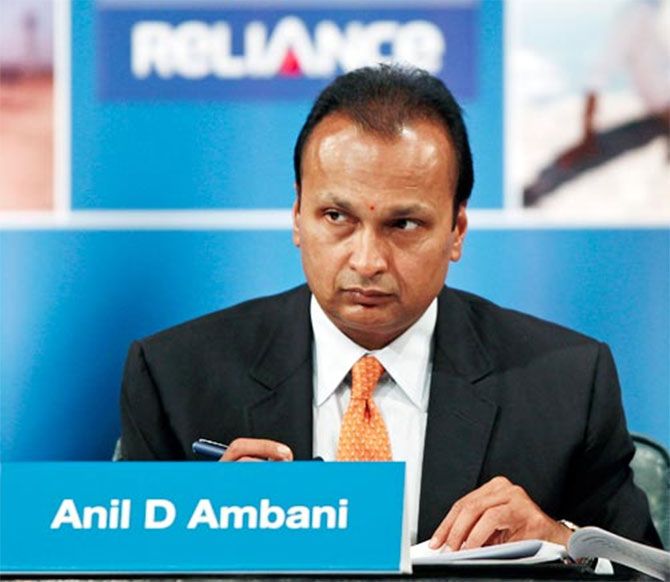Ballooning debt forces more and more Indian promoters to sell out to global majors and PE players, report Surajeet Das Gupta and Sachin Mampatta.

Max group Chairman Analjit Singh makes no bones about why he sold two of his flagship companies to foreign private equity funds.
The hospital business requires scale and that means pots of money which made it better suited to the big boys; it faced regulatory and political risks (one hospital was forcibly closed by the Delhi government); and his children were not interested.
Last December, Singh, an entrepreneur who built his empire from scratch, sold his chain of 13 hospitals to PE major KKR-backed Radiant Life Sciences and followed it up in February by selling his 51% stake in his health insurance business, Max Bupa, to PE fund True North.
"I don't want a Ranbaxy or a Vijay Mallya (both are in serious debt) legacy but a successful one," he said once.
In many ways, Singh sums up the mood of many leading entrepreneurs who want to untangle their debt problems even if it means losing their crown jewels.

The list includes Anil Ambani, the Ruias, the Nairs of Leela hotels and Ranbaxy's Singh brothers who have been selling controlling stakes or just cashing out from their companies.
"What we are seeing is that Indian promoters are much more willing to give majority stakes than before. They are comfortable being minority shareholders," says Kalpesh Kikani, managing director, AION Capital.
Bain Capital MD Amit Chandra points out that for companies to grow to the next level requires a paradigm shift in promoter thinking.
"Sometimes this means cashing out, or diluting holdings and becoming minority shareholders. While the status quo is a possibility, it is often not a value creating one," says Chandra.

While foreign companies and global private equity players announced deals worth $35.46 billion in 180 deals in FY 19, the number in the last two months has already touched $11.32 billion for controlling stake in as many as 22 entities.
Moreover, the average deal sizes are becoming bigger. In the first two months of this year, they were nearly three times the size as compared with FY 2019.
Japanese companies have joined the party aggressively this year.
Between April till now, they have announced deals worth $655 million compared to only $79 million in the entire financial year of FY19 in control deals.
The average deal size of the Japanese has become multiple times bigger at $218 million compared to $9 million in FY19.
The Chinese have also quietly made their presence felt.
The announced deal value was $327 million in FY19 which was over three-and-a-half times more than for the previous financial year.
They are still to open their account in FY20.

Some of the factors that have impelled many entrepreneurs to sell some of their jewels to reduce group debt are: A burgeoning debt burden, without the expected profitability; the RBI squeezing the easy availability of loans; and the pressure of IBC in the case of default.
Ranged on the other side are foreign strategic companies and PEs on the lookout for attractive opportunities.
The Ruias, for instance, after their stake sale in telecom to Vodafone (they got Rs 34,000 crore/Rs 340 billion), went on a massive expansion spree investing over Rs 120,000 crore/Rs 1.2 trillion on various projects between 2010 and 2015, betting on surging demand in their chosen areas.
Nearly half of the investment was funded by debt from banks.
As a result, the capacity of their steel, refinery and power stations nearly doubled in one go.
But the reality turned out to be different. Steel prices continued to fall for nearly three years from 2012-2015 because of cheap Chinese imports.
The cancellation of the gas supply to the Hazira steel plant adversely impacted production.
And the power business was impacted by the 'coalgate' scandal which led to the de-allocation of the key raw material - captive coal mines.
The group debt soared to over Rs 155,000 crore/Rs 1.55 trillion.
The consolation for the Ruia group was that the debt was matched by strong assets on the ground which helped it not only to get a good value for the assets but also to reduce the group debt substantially.
For lenders it has meant taking hardly any haircut.
The big cash generator was, of course, the sale of a 98% stake in their refinery business to a consortium led by Russian giant Rosneft which got them Rs 72,000 crore/Rs 720 billion.
The Ruias followed this up by undertaking smaller deals such as selling their entire stake in Aegis, the BPO outfit, to Capital Square Partners and their stake in the Equinox office complex in Mumbai to Brookfield last year.
These two deals fetched them over Rs 4,400 crore/Rs 44 billion.
With the restructuring, the group has brought down its debt to Rs 30,000 crore/Rs 300 billion (Essar Steel debts are now to be tacked in the NCLT).
Those close to the Ruias say it has always been their strategy to build and grow businesses and then sell, as they did in telecom, and that is what they have done this time too.
Others say the sell off was based on pressure to pay back lenders and reduce debt.

Anil Ambani, whose telecom business is now in the NCLT, sold off a 43% stake in his mutual fund business to his partner Nippon Asset Management for Rs 6,500 crore/Rs 65 billion.
His new mantra within the company is 'death of debt' and he hopes to bring it down in financial services by half by the end of this year to Rs 9,000 crore/Rs 90 billion.
To do so, he is already in talks with global investors for a majority stake in the home finance business.
Or take the Leela group founded by Captain Nair which was once considered among the big three in the luxury hotel business, along with the Taj and the Oberoi.
However, unlike many of its competitors, it decided to build its own hotels rather than follow an asset-light franchisee model.
This led them to fall into a debt trap which in turn led to a default on payments.
The Leela group amassed a debt of Rs 4,000 crore/Rs 40 billion and had no choice but to sell four of its marquee properties to Brookfield for Rs 3,950 crore/Rs 39.5 billion to pay off the debt.
The Nairs will now only manage the properties if the deal goes through.












 © 2025
© 2025